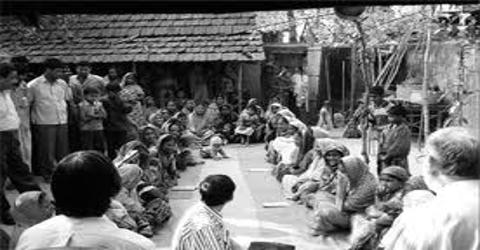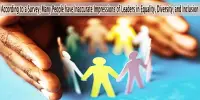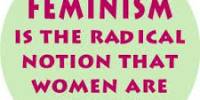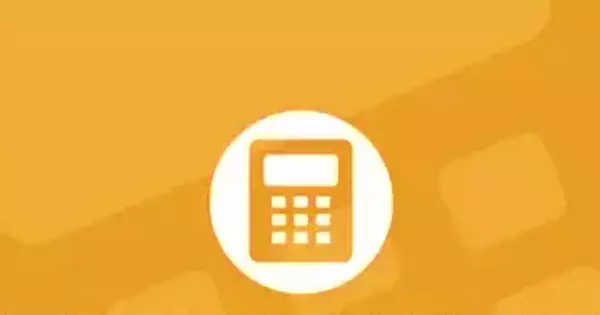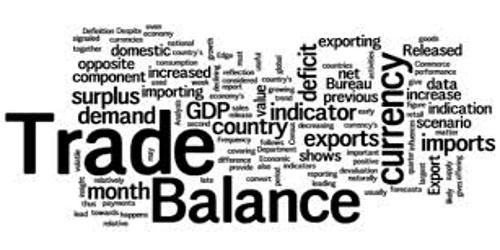Bangladesh is one of the poor country of 3rd world. Bangladesh government take many steps top for poverty reduction. But it is very impossible to reduce poverty on early time. In this situation government is working together with different NGO’s in rural areas to make the people self-employed. The purpose of this report is to identify the role of NGO on poverty alleviation in Bangladesh. Other discussion are to uncover the facts regarding the role of NGO`s in poverty alleviation and to remove the negative idea about NGO`s. And finally recommend to make the people aware of the activities of NGO`s in a positive sense.
Topic: The Role of NGO on Poverty Alleviation in Bangladesh
ABSTRACT
The purpose of this study is to identify the role of NGO on poverty alleviation in Bangladesh. But it is very difficult to identify it in this short dimension. Bangladesh is beset with multifold problems due to poverty. Albeit the Government and Non –Government Organizations are playing important role for effective change in the socio-economic development of the country. There are a lot of reasons for poverty in our country. Accordingly, I collected some primary data and found some problems in this field, which is shortly depicted in this paper. Finally, I have given some recommendations, which will be helpful with a view to reducing poverty from our society.
Introduction :
Poverty is a constant companion of most of the people of Bangladesh due to some specific reasons for which the rich are becoming more rich and the poor are becoming poorer . Bangladesh formerly known and East Pakistan won its independence on December 16, 1971 after a long blood-shed and bitter struggle against Pakistan. Bangladesh is considered as one of the poorest countries in the world, faces three major crises namely economically, politically and environmentally. The economy of Bangladesh is predominantly agrarian. But scientific method of cultivation is not yet introduced. On the other hand, the cultivable lands are decreasing due to river erosion and new building construction. So our agricultural sector is in the face of threat which is a negative effect in our economy. Political instability is another cause of Poverty. Since the independence of Bangladesh in 1971, political instability and corruption were increasing monotonically which are the major causes of poverty. But it is a matter of great pleasure that the present government is trying best to remove corruption. Environmentally there is a widespread forest destruction and environmental degradation, which causes natural disaster. So the government itself can’t remove poverty from the society. Because maximum people’s support is necessary. Therefore the role of NGO’s is inevitable for the planned development of any country. Accordingly, a lot of NGO’s are working simultaneously in the country. NGO is an association of persons formed through the personal initiatives of a few committed persons dedicated to the design, study and implementation of development projects at the grass-root level . They work outside government structure but operate within the legal framework of the country and their target population are the rural poor. In Bangladesh different kinds of NGO’s are working positively for poverty reduction and socio-economic development. At present, about 56 million of people are living below the poverty line and 30 million are hard core poor and in extreme poverty. Poverty reduction and implementation of livelihood of the poorest of the poor has always been one of the major goals of all development.
Statement of the Study :
Poverty stands for those people who are in want of any of their fundamental needs. If an individual is in short of any of the needs, he or she will fall under the curtain of poverty. We can say that poverty means the people living under poverty line. In another sense, poverty means the state of being poor. The most common measure of poverty is the number of household’s below poverty line where poverty line is calculated on the basis of the level of expenditure required attaining minimum calorie requirement. The poor people are in lack of education, shelter, food, cloth, security and income earnings. Above all, they are under poverty line. Poverty is their constant companion. After experiencing with those frustrated chaotic situation some heroic sons of our beloved country formed an association named BRAC under the dynamic leadership of Mr. Fazle Hasan Abed in 1972 and other benevolent welfare association. Through the concerted efforts of all the people of that committee , BRAC has tried their best to alleviate the poverty and ensure the experiment of marginalized women and the poor. Besides, a lot of NGO`s are working for poverty reduction. On the other hand, the role of Grameen Bank under the dynamic leadership of Noble Laureate Prof. Dr. Yunus is remarkable.
Objective of the study
This term paper has been prepared as a compulsory part of 92 Foundation Training Course. This course plays an important role in creating creativity specially in the field of research. As a participant of 92 FTC, the name of my term paper is “The role of NGO on poverty alleviation in Bangladesh”. The objectives for preparing this term paper are as follows :
- To uncover the facts regarding the role of NGO`s in poverty alleviation.
- To remove the negative idea about NGO`s.
- To make the people aware of the activities of NGO`s in a positive sense.
- Clear pen picture of NGO`s in Bangladesh.
- To remove the religious superstitions and false notions that is available in the mind of the people about the activities of NGO`s.
Research Methods :
Source of data
Process of collecting data. The main target of research is to identify the problem, collecting data from different sources and neutral reports. So at the time of preparing the term paper, I collected different kinds of data from primary and secondary levels for this purpose. I first made some questionnaire for the workers of NGO`s and the beneficiaries. For secondary data, I had to take help from different research papers and different books related to NGO`s.
Definition :
- Poverty : Poverty refers to form of economic, social and psychological deprivation occurring among people or countries lacking sufficient ownership, control or access to resources to maintain or provide individual or collective minimum levels of living.
- NGO : Non-Government Organization generally means any organization not established by government. It is fully conducted by Non-Government sector. Government doesn’t interfere in their work.
Second Chapter: Main body
The evolution of NGO’s in Bangladesh:
NGO’s started shortly after the 1971 war of liberation, initially providing relief services and rehabilitation assistance to war savaged victims. Those NGO’s shifted their development programmes and strategies towards community development, giving special preference to the poor and to the powerless segments of Bangladeshi society.
Dr. David Korten analysis the evoluation of the NGO’s sector in Bangladesh within the framework of the four Generation of NGO’s.
Ist Generation: NGO’s put emphasis on relief and rehabilitation work (1971-72).
2nd Generation: Development efforts of NGO’s are aimed towards community development (1973-75) with a number of sectoral activities.
3rd Generation: This is known as sustainable system development where the NGO’s extend the breath of their programs, enormity sustainability through under taking large-scale program, complementing the national development system and involving various organization and institutions.
4th Generation: Which entirely depends on the development phase of NGO’s in realizing their vision of society characterized by strong people’s movements.
Role of NGO’s is poverty alleviation :
On this planet, more than 140 crore of people, two-thirds of whom are women live in abject poverty, earning less than one dollar in a day. At the same time our planets ability to sustain itself is eroding. Declining ecosystem and growing social and ecological vulnerability affect everybody but poor people supper their consequences more than others. The main challenge that developing countries face is providing access to food, safe water, sanitation, education and health services to ever increasing population who are mostly poor. So, major challenge of all poor countries is poverty alleviation and for a country like Bangladesh this is at the top as a priority. But the question arises why they are poor? Is it that they have chosen to remain poor or they are poor because they are poor mentally, physically, economically and environmentally. Nobel Laureate Dr. Amartya Sen concludes, they are poor because they are deprived of their access to resources and they suffer from poverty. Poverty is caused by the lack of exchange entitlement in a market economy.
Bangladesh Scenario:
Like many other developing countries Bangladesh has succeeded in ensuring sustainable growth in the last decades and reduced income poverty level significantly. But we are still now where near articulating a complete theory of the growth-poverty-inequality relationship. Poverty stands for those people who are in want of any of their basic needs. If an individual is in short of any of the following needs. She/he will fall under poverty line.
Poor are not a homogeneous group but three major categories can be distinguished:
- Extreme poor
- Moderate poor.
Vulnerable non-poor
On an average in a village 20%, 25% and 30% population is extreme poor, moderate poor and vulnerable non-poor respectively. The poor and the poverty are used interchangeably and some times complementarily. Those poor people are much downgraded in terms of income gathered, security arrangement, basic needs fulfillment and income earnings. They are in lake of education, shelter, food, cloth and security. Above all, they are under poverty level.
We know that the poor are very much suppressed and lead a life of great misfortune. They earn very little amount of money and suffering from the shelter problem, security problem. They are deprived of getting education and are not under the web of getting proper sanitation facilities. The most important characteristics of poor are their dependency on agriculture and most of them are heavily depend on daily wage earnings. Government of Bangladesh tries were level best since its birth to alleviate the state of poorness and extreme poverty level and did little being constrained by thousand of reasons. But the Government can’t do it alone. After observing the situation, some heroic men of our beloved Bangladesh formed an association named Bangladesh Rural Advancement Committee under the dynamic leadership of Mr. Fazle Hasan Abed in 1972 and accordingly since then, the association is proceeding positively.
Purposes of NGO:
NGO’s exist for a variety of purposes usually to further the political or social goals of their members. Examples include improving the state of the natural environment , encouraging the observance of human rights improving the welfare of the disadvantaged or representing a corporate agenda. However, there are a huge number of such or organizations and their goal were a broad range of political and philosophical positions. NGO’s vary in their methods. Some act primary as lobbyists, while others conduct programs and activities primarily. For example, such NGO’s are OXFAM, BRAC, ASA, concerned with poverty alleviation, might provide needy people with the equipment and skills they need to find food and clean drinking water.
Prevailing Micro credit :
Money begets money, Adam smith in his famous book ‘Wealth of Nations’ said “When you have got little, it is often easy to get more”. The great difficult thing is to get that little. Micro-credit is a small loan that is given to the poor for self-employment. Micro-credit through institutional arrangement is a recent innovation for poverty reduction among the poor. Now a day, Bangladesh is called the land of Micro-credit revolution. Really Porf. Dr. Akter Hamid Khan is the first innovator of Micro-credit in Bangladesh. Afterwards Noble Laureate Prof. Dr. Yunus developed it elaborately.
In the micro-credit system, service holders/providers go to the doorsteps of the poor based on the principle that the people should not go to the bank rather than bank should go to the people.
Micro-credit and Poverty alleviation:
The main objective of micro-credit is to create income of poor households and thereby alleviate poverty. Micro-credit leads to the improvement of income. The Ex-Secretary General of UN Kofi Anan opined that eradicating poverty is perhaps the greatest Global Challenge. Out of 6 billion population in the world, 2.8 billion live or less than two dollars income a day. Out of which 1.2 billion people live in Asia and 30 million in Africa. Micro-credit programs in these region show that it’s a strong weapon. More than 64 million of the world poorest people have taken part in the past ten years in micro-finance projects with the purpose of coming out of the vicious circle of poverty and of the hard core people of Bangladesh too. Micro-credit plays a significant positive role in improving rural women of Bangladesh. Through their involvement in micro-credit, many women have become leaders, instigating change in social practices and relationships and mobilizing social action. Women status, both in their homes and communities is improved when they are responsible for loans and for managing savings. When they generate and control their own income women gain a level of power that means they can make decision independently.
A research reveals that NGO`s started credit programs in mid eighties and their activities increased noticeably higher after 1990. With the increasing number of collateral free micro credit disbursement by MFIs, some NCBs and specialized Banks like BKB, RAKUB have been encouraged to provide a considerable amount of their rural credit to the poor without security. However, the amount is much less compared to the deposit mobilization from the rural sector of the country. Today, some of the PCBs have also started direct and linkage program with NGO’s total loan disbursement by these four kinds of institutions will December 2002 won taka 434.55 billion of which disbursement under Government program was taka 37.77 billion (8.69%) Grameen Bank disbursed taka 154.11 billion (35.46%), of he Bonus and MFI, NGOs disbursed 78.41 billion (18%) and taka 164.26 billion (37.80%) respectively.
| NGO | G Bank | Other Bank | GOB |
| 38% | 35% | 18% | 9% |
All the non-government organizations are involved in micro-finance activity but they are not under the same regulatory authority. So there is no single source of information about them. However CDF and NGO who collect information of MF-NGO reveals that 629 MF- NGOs have mobilized about 13.85 million poor people. These MF-NGOs disbursed Taka 164.26 billion with outstanding loan amount of taka 25.88 billion. The outstanding amount of micro-finance extended under government program is taka 7.46 billion the outstanding balance of GB is taka 12.73 billion and that of other bank is Tk 7.55 billion.
Education Programme:
In the field of education NGO Primary schools with around 2 million students. Account approximately 10% of currently enrolled students. Of those BRAC alone accounts for over 1.5 million students in 49 thousands school which was started with 22 one room pilot schools in 1985, 66% of those are girls from poor families. Net enrolment in the formal education system is now 85% it was 55% in 1985. More over many adult schools are conducted by many NGO’s throughout Bangladesh .
Standard of living :
The officers of the NGOs go to the rural and remote areas of the country and by their physical visit and communication they make the people understand the benefit of building sound health. The villagers don’t have minimum idea of regarding of the nutrition of food and first aid.
Development of Agriculture:
Generally, NGOs in Bangladesh focus their work on the very poorest sectors of society such as landless, women and the rural poor. There is now a proliferation of NGO’s in Bangladesh Accounting to ADAB, an apex forum of NGO’s founded in 1974 with foreign aid and accordingly has been working for the development of agricultural sectors .
Socio-economic development :
NGO’s touch the fundamental elements of socio economic development of the country. If human resources are not properly used. It will be gradually inactive and useless for the country bringing no utility. So NGO’s with their pragmatic and practical programmes are always acting to bring fruitful after mark of the said resources.
Uplifting Programme :
NGO’s are active in our grassroots levels with their relief, poverty alleviation, social uplift, environmental and overall development programmes. The rural poor have now direct access to the aid, credit and support to the NGO. They are participating in the actively to improve their lot. In many cases, the NGO’s are working as the awareness building.
Communication Facilities :
NGO’s were working not only for their own sake but also for local and national interest. They build many roads, bridges and highways to provide communication facilities. Considering uplifting the standard of field likes of the people the NGO’s have taken lots of the developing programme. They go to the rural and remotest area of the country. They try to make the people understand the benefit of building sound health. In all spheres of development NGO’s are reported to have created a landmark in the history of Bangladesh.
Types of NGO’s:
NGO’s are heterogeneous group. A long list of acronyms has developed around the term NGOs
These includes:
- INGO- Stands for International Non-Government Organization such an CARE, Helvetas, ADFA- India
- BINGO-stands for Bangladesh Business-oriented Non-Government Organization.
- RINGO- Religious International Non-Government Organization such on Catholic Relief.
- ENGO- Environmental Non-Government Organization such as Global-2000.
The primary purpose of an operational NGO is the design and implementation of development related projects. One categorization about that is frequently used is the division into relief oriented and development oriented organization. They can also be considered according to whether they stress service delivery or participation; whether they are religious and secular; and whether they are more public or private oriented. Operational NGO’s can be community based national or international.
Chapter Three
For collecting primary data. I prepared questionnaire for the service providers who are engaged in different NGO’s. The questionnaire consist ten questions. I visited a few NGOs for collecting primary data. The data were collected from twenty persons. These data are given below in form of table :
Table – 1 : What kind of pragmatic programme may be taken for poverty alleviation ?
| By giving loan | Proper investment to the indebted people | By motivation | Motivation side by side giving loan |
| 0 | 5 | 0 | 15 |
| 0% | 25% | 0% | 75% |
Table – 2 : Can Gender -oriented program be taken for poverty alleviation?
| Giving loan to male an female | The role of man for the motivation of women | Providing additional income for women. | Creating equal opportunity for income both man and women |
| 0 | 10 | 10 | 0 |
| 0% | 50% | 50% | 0% |
Table -3 : Can universal primary education program be taken for poverty alleviation?
| Increasing the role of educated people | The educated people can remove poverty | Giving equal opportunity for man and women | Creating employment opportunity by technical education |
| 0 | 5 | 15 | 0 |
| 0% | 25% | 75% | 0% |
Table -4 : Can begging be avoided for poverty alleviation?
| Begging creates obstacle in the activities of man | Begging is against the solvency of man.
| Making self dependent avoiding begging | Motivating in self employment avoiding begging |
| 0 | 0 | 5 | 15 |
| 0% | 0% | 25% | 75% |
Table -5 : Should high interest rate be decreased for poverty alleviation?
| Getting rid of the poor people from high interest rate | Giving loan on easy condition | Getting rid of poor people from land mortgage / advance payment for poverty alleviation | Removing disparity in giving loan |
| 0 | 5 | 15 | 0 |
| 0% | 25% | 75% | 0% |
Table -6 : Can saving mentality be created for poverty alleviation?
| Saving mentality is helpful for poverty alleviation | More capital can be created by saving | Creating more investment by small saving | Creating permanent self employment by investment |
| 2 | 0 | 2 | 16 |
| 10% | 0% | 10% | 80% |
Table -7 : Women empowerment can be vital role in poverty alleviation?
| Increasing the rate of women education | Giving technical education to women | Technical education is helpful in economic solvency for women | Poverty alleviation is helpful for women empowerment |
| 10 | 5 | 0 | 5 |
| 50% | 25% | 0% | 25% |
Table -8 : Poverty alleviation is helpful for safe maternity.
| A safe and sound mother is helpful for poverty alleviation | Safe maternity can bring peace and happiness in family | The sound generation today can bring poor pokty in future | Economic solvency for safe maternity |
| 10 | 8 | 2 | 0 |
| 50% | 40% | 10% | 0% |
Table-9: Juvenile delinquency can be removed with help of poverty alleviation?
| By giving proper education | Universal primary education should be ensured | By giving employment | By taken stern action against youth. |
| 0 | 10 | 15 | 0 |
| 0% | 50% | 0% | 0% |
Table -10 : Giving financial support to the flood and natural disaster affected people.
| Giving unconditional loan to the affected people | Giving quick financial support | Creating investment for production | Taking initiatives protect natural disaster |
| 8 | 0 | 8 | 4 |
| 40% | 0% | 40% | 20% |
Chapter Four
Finding :
Having done the study on twenty service providers and analyzed efficient research works some problems are identified which are as follows:
(i) There are still communication gap between NGOs and grass-root level
(ii) High interest rate is still prevailing.
(iii) Transportation system is undeveloped in the rural areas.
(iv) Universal primary education program is not yet ensured.
(v) Less involvement of male participants.
(vi) The process is complicated.
(vii) Repayment process of loan is defective.
(viii) The original and landless poor people are not targeted.
(ix) The necessary trainings are not always available which is necessary for both parties.
(x) Investment system is still poor.
(xi) Some villagers are affected by conservative value for which they are reluctant to go to NGO’s.
(xii) The role of NGOs in education and Health sectors is still limited.
(xiii) Child labour is still remaining.
(xiv) The people at grass-root level are not motivated to take loan from NGOs.
(xv) Most of the people don’t have opportunity to invest their money.
Recommendations
For poverty alleviation in Bangladesh the following recommendations should be considered :
- Universal primary education should be3 ensured.
- Some sectors should be created so that the poor people may invest their money
- The poor people should be motivated for self- empoyed.
- The rate of interest should be decreased
- The poor people should be encouraged for self employment avoiding begging
- Micro-credit banks under Government initiatives can be established in rural areas to streamline micro financing
- A new procedure may be introduced to target people
- The loan repayment system must be consistent
- Male participants should be invited side by side female ones.
- Since Bangladesh Islamic country. So Islamic economic system and Islamic banking should be introduced.
- Every financial institution needs supervision and monitoring . A regulatory commission should be set up to observe the functioning of micro credit program.
- The person who are completely unable to repay loan should be given some concession.
- The service providers should be well behaved, tolerant
- Technical education system may be introduced for women.
- Illiterate people always afraid of outsider. They can’t adopt new concept easily. Proper measures should be taken to remove such in of tendency.
- Health facilities must be up-to-date. Safe and sound maternity is highly essential.
- The size of loan should be enlarged so the poor people can come out from the vicious circle of poverty.
Conclusion :
Albeit there are some limitations, the NGO’s are working positively and have been accepted as an effective tool for poverty alleviation. Bangladesh govt. has given top priority for poverty reduction. But it is quite impossible to reduce poverty single handedly. So government is working together with different NGO’s in rural areas to make the people self-employed. Here micro-credit of different NGO’s is the most important weapon for poverty reduction. We hope that if concerted effort is made, poverty can be reduced significantly in Bangladesh.
